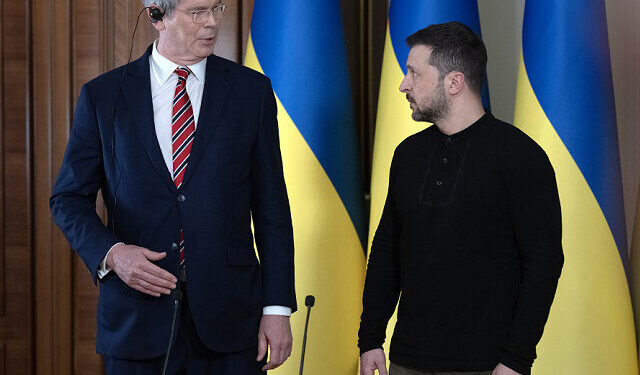Sometimes, history is made quietly in boardrooms before the world even realizes it. That’s exactly what happened this week as the U.S. and Ukraine reached a major economic deal—one that could reshape the relationship between the two nations while shifting the global conversation on Ukraine’s future.
In an exclusive interview with Larry Kudlow on Fox Business, U.S. Treasury Secretary Scott Bessent revealed that the United States and Ukraine have finalized an agreement on strategic minerals, oil, and gas. But that’s not all—the deal is already approved by Ukraine’s leadership and is just waiting for a signature.
The agreement, which was quietly approved by Ukraine’s governing council, focuses on three key areas:
✅ Strategic Minerals – Ukraine has large reserves of critical minerals essential for modern technology, from batteries to defense systems. This deal ensures U.S. companies gain access to these resources, boosting supply chains and reducing reliance on competitors like China.
✅ Oil & Gas – With energy security becoming a global priority, this part of the deal could increase Ukraine’s energy production while giving American companies investment opportunities. This could help both nations reduce dependence on Russian energy sources.
✅ Infrastructure Assets – Beyond energy, the agreement will open doors for U.S. businesses to invest in Ukraine’s rebuilding efforts, strengthening its economy and creating potential job opportunities back home.
According to Bessent, this isn’t just about economics—it’s also about strengthening ties between Ukraine and the U.S.
“It’s really a win-win. It brings the Ukrainian people and the American business community closer together. It shows the American people that there is upside here for them—that we have not squandered the money because the American people are always concerned about overseas intervention,” he explained.
And perhaps the biggest moment? Ukrainian President Volodymyr Zelensky is set to visit the White House to sign the deal alongside President Donald Trump.
“There is no more negotiation,” Bessent emphasized. “It is complete, it is on paper, and the Ukrainian government has approved it. It is just awaiting the signatures of the two heads of state.”
This deal marks a notable shift—instead of pouring aid into Ukraine with little return, the U.S. is securing economic benefits in exchange for its support. Bessent even noted that this move could make history, saying it’s the first time a U.S. president has turned global conflict spending into valuable assets for the American people rather than debt.
With peace talks underway and an economic strategy now tied to Ukraine’s future, this could be a pivotal moment in shaping the country’s post-war recovery. And for the U.S.? It’s an approach that balances economic gain with international support—something that could reshape the way America approaches global alliances moving forward.




















